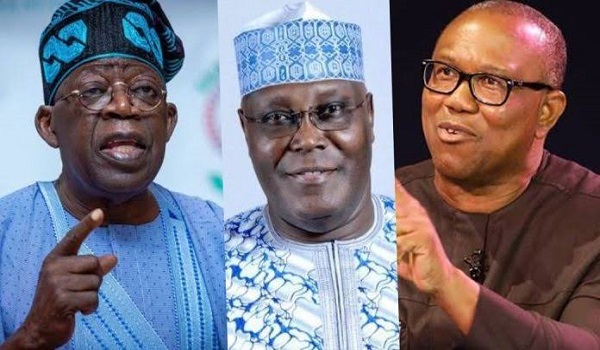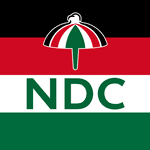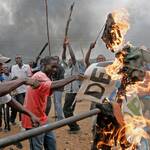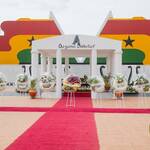Voters in Africa’s most populous country, Nigeria, will head to the polls today February 25 to select their next president.
18 presidential candidates
A total of 18 presidential candidates will take part in the forthcoming election.
87.2m registered voters
Their fates are to be decided by a total of 87.2 million (87,209,007) voters registered by the Independent National Electoral Commission, Nigeria’s electoral body, across the 36 states of the country and the Federal Capital Territory.
2nd round in 3 weeks if no clear winner emerges
If there is no clear winner, a second round will be held within three weeks.
The duopoly
Convention suggests a candidate from one of the two main parties will win – Atiku Abubakar or Bola Tinubu.
But, Peter Obi’s supporters are hoping he can spring a surprise if they can mobilise the large youth vote to back him.
Peter Obi
Young Nigerians, who say they have grown tired of older politicians, are mobilizing behind a candidate they consider more youthful and who promises real solutions to their problems.
At 61, Peter Obi is the youngest of the three and currently the most popular.
Young Nigerians are calling for a new era and seem poised to demonstrate that, with 71% of those who completed their voter registration aged between 18 and 34, according to Nigeria’s Independent National Electoral Commission (INEC).
With his “Hope Alive” campaign slogan, Peter Gregory Obi, presidential candidate of the Labor Party (LP), is taking his first shot at the presidency, promising to tackle insecurity, improve the economy, and fight against corruption.
Obi, born on July 19, 1961, is a former governor of the southeastern state of Anambra. During his tenure as governor, from 2006 to 2014, he implemented several policies and programs aimed at improving the state’s economy, infrastructure, improvement of education, and the welfare of citizens.
After his tenure as governor, Obi has continued to play an active role in politics.
On October 12, 2018, he was named as the running mate to Abubakar in the 2019 presidential election on the platform of PDP.
In March 2022, the former governor declared his intention to run for president on the platform of PDP but later decided to pull out in May 2022, announcing his resignation from the party and joining the LP to contest on its platform.
Obi’s presidential ambition attracts a huge number of the country’s youth.
The movement campaigns on the candidate’s perceived ideology of resourceful management and investment in key sectors, economic growth and development, frugality, and economic production rather than ostentatious consumerism and waste.
Bola Tinubu
Bola Ahmed Tinubu is the presidential candidate of the All Progressives Congress (APC), Nigeria’s governing party.
A former governor of the southwestern state of Lagos, Tinubu is widely considered to be one of the most powerful and wealthy politicians in the country and has played a major role in shaping Nigeria’s political landscape.
Born on March 29, 1952, in Lagos, the APC presidential candidate started his political career in the early 1990s when he ran as a senator representing Lagos.
He went into exile in 1994, following the seizure of power by the military, and returned to Nigeria in 1998 to run for governor of Lagos during the 1999 general elections.
He won the 1999 governorship election in Lagos and served for two terms in office.
During his tenure, he implemented various policies and projects aimed at improving the state’s infrastructure and economic development.
He also initiated policies and programs to improve education, healthcare, and security, which were widely considered to be the foundation for the development of the state.
One of the founding members of the APC, Tinubu, with his “Renewed Hope” campaign slogan, promised to continue and expand some of the policies of the current administration, including the massive social investment programs launched by President Muhammadu Buhari.
The governing party’s presidential candidate also outlined policy options for healthcare, the digital economy, women empowerment, judicial reform, federalism and the decentralization of power, and foreign affairs.
He also included huge investments in entertainment and culture, as well as expanding job opportunities for millions of Nigerian youths.
Atiku Abubakar
Apart from being the oldest among all the presidential candidates in the forthcoming election, Atiku Abubakar, who is standing for election on the platform of the major opposition Peoples Democratic Party (PDP), was a vice president of Nigeria from 1999 to 2007.
Abubakar, also a businessman, was the candidate of the PDP in the 2019 presidential election in Nigeria, where he was runner-up to Buhari, who ran for a second and last term granted by the constitution.
Born on Nov. 25, 1946, in the northeastern state of Adamawa, the veteran politician started his public service career as a customs officer, later venturing into the business world where he built a successful career in the private sector, and delved into politics in the early 1990s.
As vice president, Abubakar played a key role in the administration’s economic policies and the country’s efforts to tackle corruption and improve transparency in government.
After his tenure as vice president, he has remained active in Nigerian politics. He has run for president twice, in 2007 and in 2019, but lost both times to the late former President Umaru Musa Yar’Adua and the incumbent, Buhari, respectively.
Abubakar, with his “Recover Nigeria” campaign slogan, says his agenda includes rejuvenating the economy, closing infrastructure deficit gaps, job creation, improving security, and restructuring the nation’s political and structural system, among others.
There will also be elections for 28 out of Nigeria’s 36 powerful state governors on Saturday 11 March.
469 legislators
There are 469 legislators made up of 109 Senators and 360 members of the House of Representatives.
Permanent Voter’s Card
In order to vote, one needs to have a valid Permanent Voter’s Card (PVC), which essentially shows that the person is registered to vote and proves the identity of the voter.
The PVC contains biometrical data of the voter, used as further verification on Election Day. This data is stored in the card.
The deadline to collect a PVC has passed, so those without it cannot vote.
To cast a ballot, a voter needs to arrive at the polling station between the hours of 8am and 2pm with their PVC.
As long as a voter is in the queue to vote by 2pm, the voter will be allowed to cast the ballot.
Nigerians living in the diaspora are not allowed to vote abroad.
Bimodal Voter Accreditation System
This election is different compared to previous ones because a new system is being used – the Bimodal Voter Accreditation System (BVAS), which is a device introduced in 2021 aimed at stopping election fraud.
The BVAS is essentially a small rectangular box with a screen that is more technologically advanced than the Smart Card Readers used in the past.
The key benefit of the BVAS is that it has the capacity to perform dual identification of voters on Election Day through their fingerprints and facial recognition.
This should stop people without valid PVCs from voting, as well as those who are ineligible to vote attempting to do so.
Another aspect of the BVAS is that it uploads vote results directly to the Independent National Electoral Commission (Inec) results portal for all to see, which in theory means results cannot be tampered with.
There have been concerns about the BVAS after it experienced glitches in state-wide elections in 2021 and 2022, but Inec insists these problems have been resolved.
- Friday, May 9, 2025 Newspaper Headlines - 9 May 2025
- Adangabey brightens rural kids’ future from his wheelchair - 9 May 2025
- Stanbic donates ICT equipment to UHAS for digital learning - 9 May 2025




